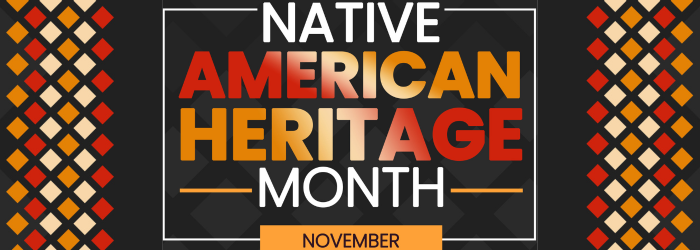At NAYA Culture is Practiced Year-round
November is National Native American Heritage Month. In the heart of the Cully Neighborhood in Portland, NAYA plays a vital role in creating a space where Native people can gather to practice culture and traditions that span generations. Through culturally specific programs, services, and events, NAYA fosters a sense of belonging, empowering Native youth and families to celebrate their heritage. Native elders in the community are culture keepers who play an important role in cultural preservation through culture nights.
Culture Nights are a gateway to tradition. They nurture the unique cultural identities and diversity of the urban Native community. The themes of culture night are also diverse and offer a variety of experiences.
Traditional Tobacco Night focused on using tobacco for prayer, a custom that has been practiced for thousands of years. It is a stark contrast to the way commercial tobacco has been used in the last few hundred years. The night made space for many elders to share traditional teachings with the group of attendees. Processing also took place in a traditional manner where many would gather to make sure it was cured and stored correctly to make it available to community members who request it for prayer or ceremony.
Beadwoven Flowers Night brought together experts and novices alike to learn about the intricate patterns of using beads to create traditional flower patterns. For thousands of years, Native people have used the Land as inspiration for artisanal items, which include regalia and jewelry. At one time in history, beaded necklaces were used as currency in trade. Often quills or shells were used to create flower shapes before glass beads were introduced in the 1600s. Today, Indigenous people throughout North America use seed beads to create detailed designs that are similar to ones created by their ancestors, as well as use their creativity to bead complex new designs.
Our Fire Cider Workshop highlighted the way Native people use food as medicine. This popular elixir that is often made with easy-to-access foods like garlic, onions, and chili peppers can be customized to include more or less of any ingredient that best suits individual needs. Fire Cider is often used at the onset of colds and flus. It can be supportive for children and elders who are sensitive to other kinds of medicines. It also encourages self-care practices that are rooted in Indigenous knowledge.
These opportunities to sit with elders at Culture Nights lead to important teachings being shared. Using our hands to process tobacco or to create beaded jewelry or using food as medicine allows us to put knowledge into practice.
Culture is vital to our work at NAYA. Culture shapes identity, self-determination, and community. For our youth, connecting with culture is grounding and builds confidence that prepares them for success in life.
This is significant because for more than 150 years, Native youth were kept from practicing language and culture. The federal government prevented children from learning about their traditional lifeways, often sending them far away from home during their formative years in the hopes that they would “Kill the Indian and Save the Man.” The impact of this traumatic episode is one that continues to reverberate today.
Last month, President Biden acknowledged and apologized for the terrors of this failed policy, the first sitting U.S. president to do so.
Tawna Sanchez (Shoshone-Bannock/Ute), NAYA Director of Family Services told KGW News “For many people, their languages are gone, many people have lost, you know, deep cultural parts of who they are…We have been resistant, we’ve survived and there are so many Native people who still have made it through to this moment in time with things intact, but a lot of things were lost and a lot of things have been really damaged by what happened in the boarding schools.”
In response to this historic apology, NAYA Family Housing Advocate Ankita Gupta, says “I am also a descendant of an ethnic cleansing survivor (Bangladeshi)…Truth is a start, and what we people do with it matters. I hope that this acknowledgement can get people to a place of healing and reflection but that we keep demanding accountability, policy reform/changes, and education.”
At NAYA, we acknowledge that this was the first major step on the road to healing. Our elders and their descendants deserve to be heard. Secretary Deb Haaland (Laguna Pueblo), who was present at the apology ceremony, said “we know that the federal government failed. It failed to annihilate our languages, traditions, our lifeways. It failed to destroy us because we persevered.”
Secretary Haaland shared that there would be a 10-year plan unveiled soon that would focus on the next steps for communities impacted by federal boarding and day schools. We also hope there will be more work done to include resources for communities like the Chinook Nation who may be left out because of the loss of federal recognition.
Culture keeps us connected. This National Native American Heritage Month, find opportunities to gather with others at NAYA – let us practice culture together.
